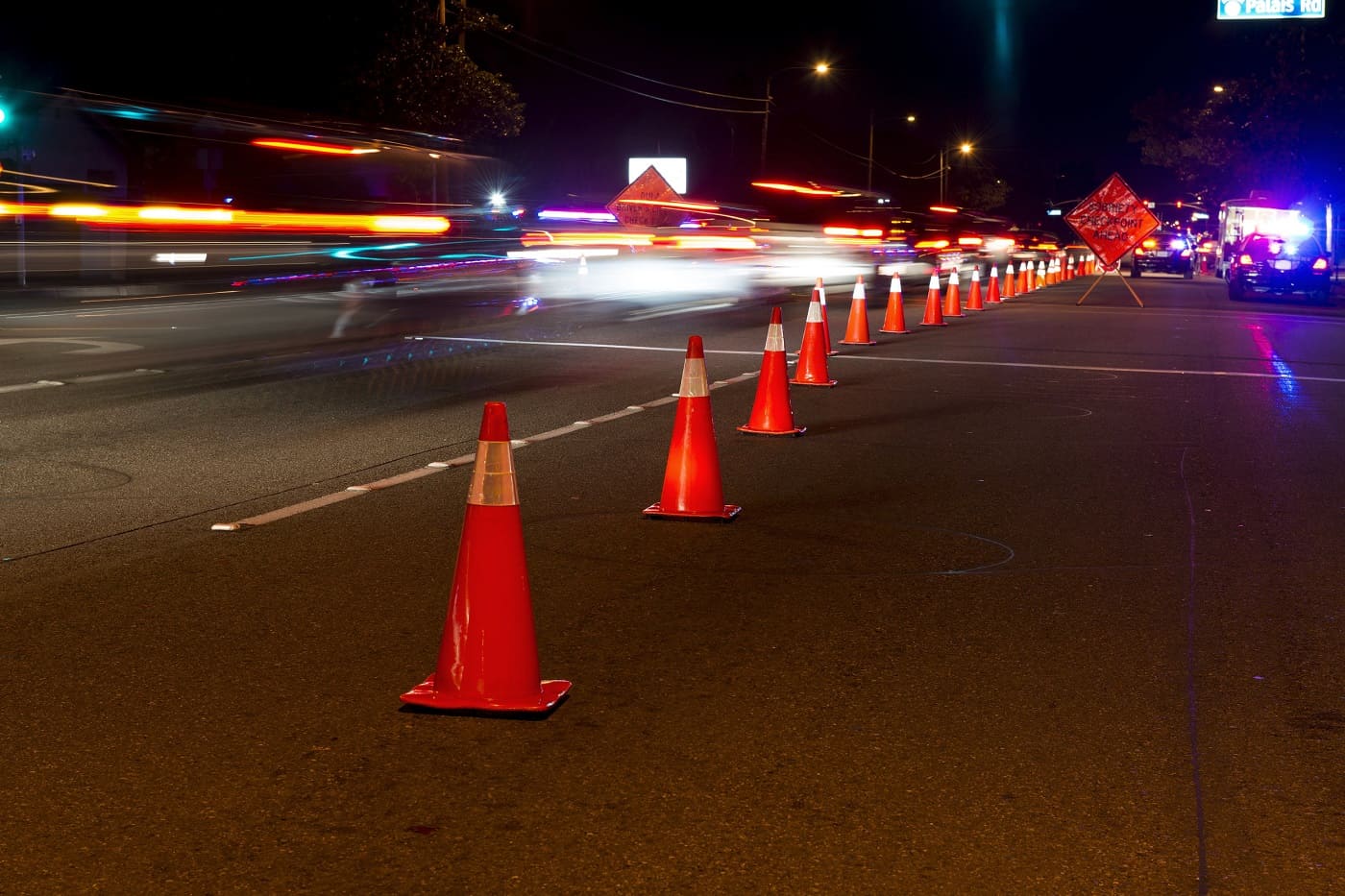Law enforcement in Las Vegas will frequently institute DUI checkpoints to crack down on drunk driving and to ensure the safety of others who are sharing the road. Below are a few tips on what to know when it comes to DUI Checkpoints in Las Vegas or Nevada in general.
What Is a DUI Checkpoint?
A DUI checkpoint is basically an area that has been cordoned-off on a public road by law enforcement to check that drivers are operating vehicles sober and safely.
They are normally seen late at night or early in the morning, and they are frequently found on roads during holidays or on weekends. They are basically set for times of day or of the week when law enforcement is likely to catch someone driving while under the influence.
What Should Someone Expect at a DUI Checkpoint?
If a driver has not been consuming any alcohol or illegal substance before driving, he or she does not have to worry.
The driver will come to a roadblock and will see safety cones, police cars and rope ahead indicating that he or she will need to stop. An officer will approach the car and will question the driver to see if he or she is under the influence. The officer will also use a flashlight to shine in the car to see if the driver is transporting open alcohol containers in the vehicle.
If the officer believes the driver is intoxicated, he or she will direct the driver to a nearby area to take a preliminary breath test (PBT) and will ask the driver to perform a field sobriety test (FST). When coming upon a DUI checkpoint, the driver needs to have his or her license, registration and proof of insurance ready.
Are Checkpoints Legal?
The checkpoints traditionally are set up legally, but they must follow certain guidelines, including the following:
- The checkpoint must be visible on a highway to oncoming traffic at a distance of 100 yards in either direction;
- Law enforcement must put up signage indicating that traffic will need to stop. The signage must be in the center of the highway and the words must be large enough to be read at a distance of 50 yards in either direction;
- The checkpoint must have at least one flashing red light at the side of the highway, which must be visible at a distance of at least 100 yards to oncoming traffic;
- Warning signs must be put at the side of the highway at least a quarter mile from the roadblock, allowing traffic enough notice that a police stop is ahead.
So long as the above guidelines have been met, the checkpoint is put up legally. The checkpoint must cause the least amount of inconvenience as possible and not create a hazard. If any of these guidelines are not met, and the driver is arrested for a DUI, it is possible that the case can be dismissed.
Specifically, in Las Vegas, the police will normally issue a press release informing the public of the scheduled DUI checkpoint, especially if it is going to be set on a special weekend or holiday.
The Driver’s Rights at the Checkpoint
The officer will be prepared to ask the driver a series of questions. If the questions are answered without any issue, odds are the driver will be free to go on his or her way.
If the officer believes the driver is intoxicated, they will ask the driver to do field sobriety or breath tests, but the driver is entitled to refuse to take these tests. The driver also has the right to remain silent at the checkpoints. Keep in mind, however, that if the driver declines a test, the police can get a warrant to force these tests.
Avoiding a Checkpoint
What happens if a driver sees a checkpoint ahead and wants to avoid it? The law does allow the driver to take any legally available means to avoid a checkpoint if he or she sees one coming up ahead. Valid reasons can exist such as the driver having an appointment to get to and not wanting to be held up at a roadblock.
However, if there are no legally available means, such as an exit ramp or available road, the driver will need to stop.
If a driver speeds through the checkpoint or does something illegal to avoid it, he or she will face some serious charges, especially if this attempt put others in risk of harm or death. The driver can at least be charged with a gross misdemeanor, which carries a penalty of as many as 364 days in jail and $2,000 in fines.
Contact Us Today!
If you have been arrested for a DUI while visiting Nevada, it is important you contact the Hill Firm today. We can meet with you to discuss your rights and all potential legal consequences from your arrest. Contact us today at 702-848-5000.

